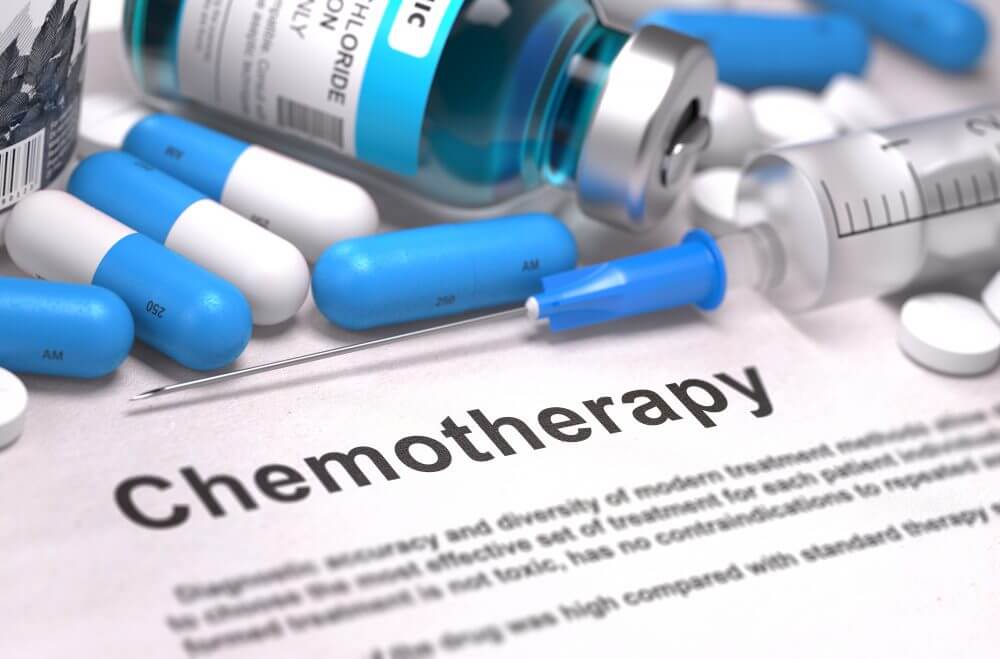Chemotherapy refers to the many drugs that are used to treat cancer in millions of patients. But chemo resistance – when the body fights those often powerful medications – is a big challenge for researchers and physicians trying to help patients, as well as the sickness itself that chemotherapy generates.
Cancer is usually managed in different ways. That could include surgery, and radiotherapy, and also chemotherapy. Chemotherapy includes a single medication or combination of drugs. The goal of chemotherapy is relatively simple but very complex: stop or slow the growth of cancer cells.
It is not an easy journey for some.
Side Effects
Chemotherapy side effects are common among people with cancer. Although chemotherapy aims to destroy cancer cells and stop them from multiplying, it can also damage healthy cells, which can cause other illnesses.
There are many different types of chemotherapy, and doses of the drugs given, all of which play a role in nausea and vomiting and hair loss. Not every person will have the same response to a dose or type of chemo.
Ultimately, chemo is measured in how effective in fighting the cancer someone has. Cancer resistance to chemo may cause relapses and deter or slow down clinical improvements for patients.
Drug resistance is a well-known phenomenon that results when diseases become tolerant to pharmaceutical treatments. Although many types of cancer are initially susceptible to chemotherapy, over time they can develop resistance through these and other mechanisms. Cancers are known to have the ability to develop resistance to traditional therapies, and with more drugs there is concern that more research is needed into such resistance.
Chinese Medicine
Researchers from China have compiled data that reveals the efficacy of Chinese medicines in treating complications from cancer treatment, published in the Chinese Journal of Integrative Medicine. Some Chinese medicines were identified as having lower toxicities and fewer adverse effects. In addition, there have been natural formulas in Chinese medicine used to treat side effects of cancer treatment. Some academic journals say that more study has to be conducted.
Chinese medicines have been used for thousands of years to restore imbalance of body functions due to diseases, based on holistic theories.
Proponents of natural products say they are rich sources of bioactive constituents that have the ability to reverse cancer multidrug resistance and decrease side-effects.
In another study. Traditional Chinese Medicine was shown to lead to partial relief of symptoms related to lung cancer, one of the malignancies that has a high mortality rate. The relief was demonstrated for non-small cell lung cancers, when applied with chemotherapy.
Breast Cancer
Traditional Chinese Medicine Treatment also was shown to “lower the risk of severe chemotherapy-induced leukopenia, neutropenia” in breast cancer patients, according to a study.
Colorectal Cancer
In another review of Chinese herbal medicine used for patients treated with chemotherapy for colorectal cancer, researchers identified “some benefit from decoctions of Huangqi compounds. “Compared with patients treated by chemotherapy alone, patients treated with chemotherapy and Huangqi decoctions were less likely to experience nausea and vomiting or low white cell counts,” the study concluded.
Reducing Stomach Upset
Among the Chinese herbs that may help alleviate stomach upset among patients undergoing chemotherapy include ginger, which has been reported as having a significant impact in nausea reduction. Acupuncture and massage also may help relieve symptoms of chemotherapy.
Get Advice
Whatever a patient does regarding chemotherapy, it is important they consult with their healthcare providers.
References:
- Housman, G, Byler, S, et al. Drug Resistance in Cancer: An Overview. 2014. Cancers. Sep; 6 (3): 1769-1792. Doi: 10.3390/cancers6031769.
- Cathy Wong, ND. Reviewed by Richard N. Fogoros, MD. Natural Approaches to Chemotherapy Side Effects. Very Well Health. https://www.verywellhealth.com/chemo-side-effects-natural-remedies-88901
- PubMed Health. Cochrane Database of Systemic Reviews. Chinese Medical herbs for chemotherapy side effects in colorectal cancer patients. Jan. 24, 2005.
- American Cancer Society. Chemotherapy-related Nausea and Vomiting. https://www.cancer.org/treatment/treatments-and-side-effects/physical-side-effects/nausea-and-vomiting/chemo-and-nausea-vomiting.html
- Zheng, H. The molecular mechanisms of chemoreistance in cancers. 2017. Oncotarget. 8(35): 59950-59964. Doi: 10.18632/oncotarget.19048.
- Tian, H, Qin, W et al. Effects of Traditional Chinese Medicine on Chemotherapy-Induced Myelosuppression and Febrile Neutropenia in Breast Cancer Patients. Evidence-base Complementary and Alternative Medicine. Vol. 2015, Article Id 736197, 11 pages. http://dx.doi.org/10.1155/2015/736197.
- Ling, Y, Traditional Chinese medicine in the treatment of symptoms in patients with advanced cancers. 2013. Annals of Palliative Medicine. Vo. 2. No 3 (July 2013).
- Zhao HD, Xie HJ, Li J, Ren CP, Chen YX. RESEARCH PROGRESS ON REVERSING MULTIDRUG RESISTANCE IN TUMORS BY USING CHINESE MEDICINE. Chinese Journal of Integrative Medicine. June 2018;24(6):474–480. DOI: 10.1007/s11655-018-2910-1
- Chemotherapy.com What is Chemotherapy? Retrieved from: http://www.chemotherapy.com/new_to_chemo/what_is_chemo/
- Wang, Z, Ravula, R, et al. Overcoming chemoresistance in prostate cancer with Chinese medicine Tripterygium wilfordii via multiple mechanisms. 2016. Oncotargt. Scinapse. [IF: 5.17} DOI: [10.18632/oncotarget.10868.]
- Ralph Flores. Science News. 2018. Retrieved from: https://science.news/2018-09-16-chinese-medicine-can-battle-multidrug-resistance-chemotherapy.html
- Cochrane. Chinese medical herbs for chemotherapy side effects in colorectal cancer patients. 2005. Retrieved from: https://www.cochrane.org/CD004540/COLOCA_chinese-medical-herbs-for-chemotherapy-side-effects-in-colorectal-cancer-patients
- Jiao, L, Dong, Ch, et al. Effects of Chinese Medicine as Adjunct Medication for Adjuvant Chemotherapy Treatments of Non-Small Cell Lung Cancer Patients. 2017. Scientific Reports. 7:: 46524. Doi: 10.1038/srep46524.
- Tian, H, Qin, W et al. Effects of Traditioanl Chinese Medicine on Chemotherapy-Induced Myelossuppression and Febrile Neutropenia in Breast Cancer Patients. 2015. Evidence-Based Complentary and Alternative Medicine. Vol. 2015. Article ID 736197, 11 pages. http://dx.doi.org/10.1155/2015/736197.

